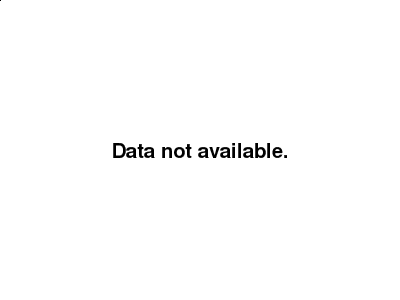The central bank is running out of bonds to purchase for its QE program
The European Central Bank (ECB) is expected to follow the lead of the other two major central banks that released rate statements this week. The Reserve Bank of Australia (RBA) and the Bank of Canada (BoC) both kept rates unchanged and did not offer any commitment on their statements.
Growth in the eurozone remains subdued and there is mounting pressure on the ECB to act. The market estimates that there has to be a change in the rules that restrict the central bank in their bond purchases. The rules could be relaxed but an agreement will have to be reached with Germany, which is a challenge in itself. The ECB and the Bank of Japan (BOJ) are under more pressure to act than other central banks as low inflation continues despite massive easing programs. Stimulus programs have failed to trigger growth in their respective economies.
The ECB will publish its minimum bid rate on Thursday, September 8 at 7:45 am EDT and will be followed by a press conference with ECB President Mario Draghi at 8:30 am EDT. The central bank is not expected to extend or expand its quantitative easing (QE) program but an downgrade to its economic forecasts could pave the way for doing so later in the year.

The EUR/USD lost 0.153 in the last 24 hours. The single currency is trading at 1.1240 ahead of the ECB rate decision announcement on Thursday. European policy makers are not expected to change monetary policy this month, but an extension of the QE program seems to be a matter of when not why.
European growth posted at 0.3 percent in the second quarter, but there are looming clouds as the Brexit vote has had a negative effect on confidence specially in Germany. Low inflation will be addressed by the ECB by adjusting its forecasts, but it could still be too early to launch a new QE initiative. Mario Draghi has had a mixed track record with communicating with markets. The EUR rallied on his pledge to do “whatever it takes” to keep Greece in the Union he’s had two underwhelming uses of his policy bazooka. In December of 2015 and March of 2016 the ECB was left disappointed when markets did not react as desired by the QE program extensions or in the case of the March policy meeting the choice of words used in the press conference.
The USD has been depreciating after weak economic data has put into question the September Federal Open Market Committee (FOMC) interest rate hike. The USD was flat on Wednesday with the Bank of Canada holding rates and the expectations that there will be little change in the ECB plans on Thursday. The central bank put downward pressure on the EUR as there has been little comments from Mario Draghi and other policy makers leaving traders with few insights ahead of the meeting. With the probability of the Fed raising interest rates later this month shrinking as more data is released, the spotlight is growing brighter on the ECB, but as the Fed they could opt to show patience until they can bring Germany on board.
After the ECB statement this week the next central bank to take the stage will be the Bank of England (BoE) on Thursday, September 15. Governor Mark Carney is confident on the central bank’s actions following the historic Brexit vote and more action appears to be not in the short term, although a rate hike could in the cards later in the year if the decision to leave the E.U. is crystallized by invoking article 50.
Market events to watch this week:
Thursday, September 8
7:45am EUR Minimum Bid Rate
8:30am EUR ECB Press Conference
8:30am USD Unemployment Claims
11:00am USD Crude Oil Inventories
Friday, September 9
8:30am CAD Employment Change
8:30am CAD Unemployment Rate
*All times EDT
For a complete list of scheduled events in the forex market visit the MarketPulse Economic Calendar
